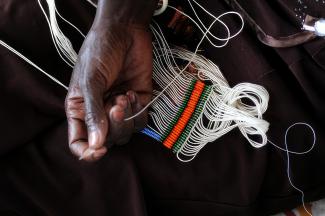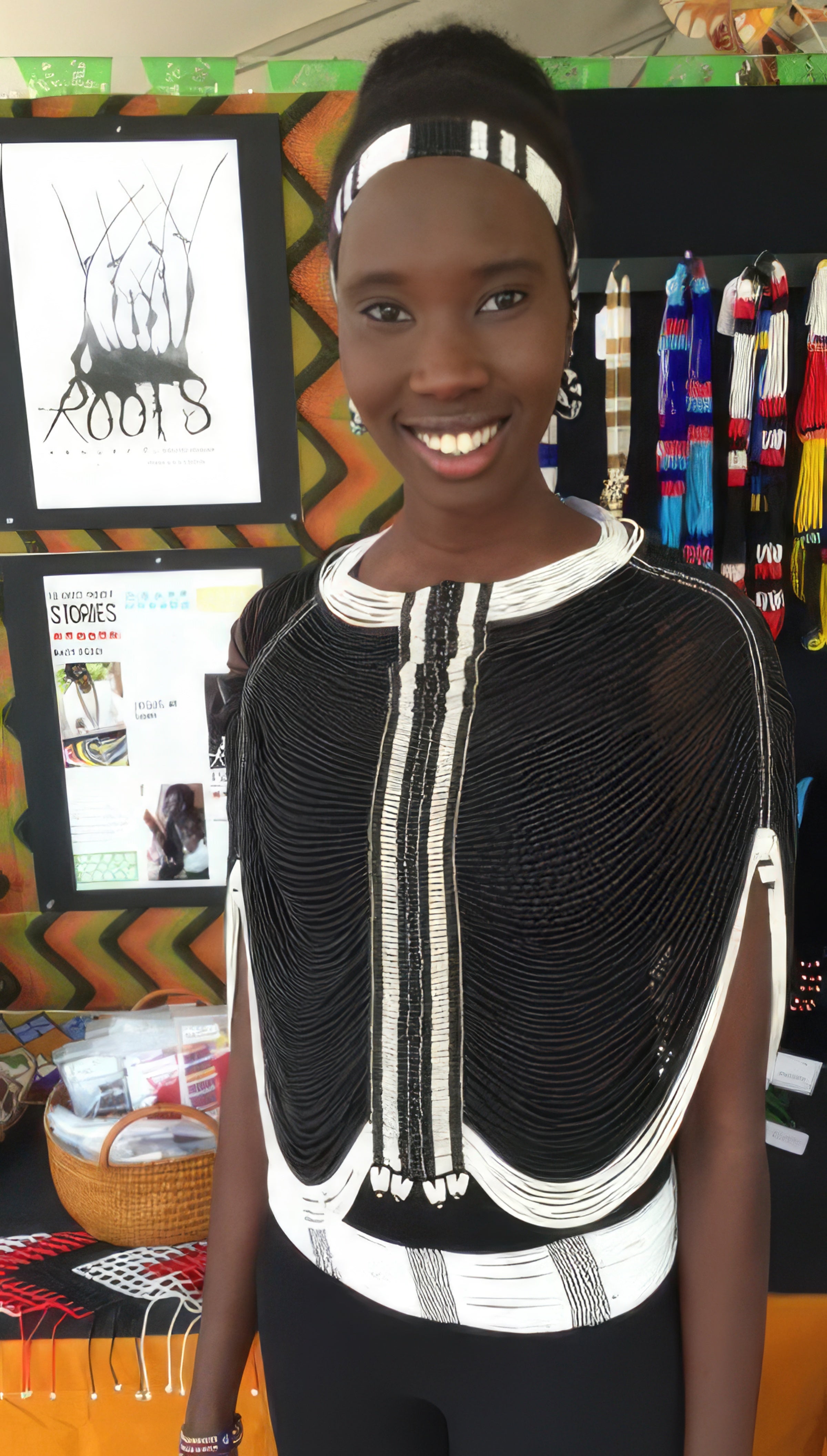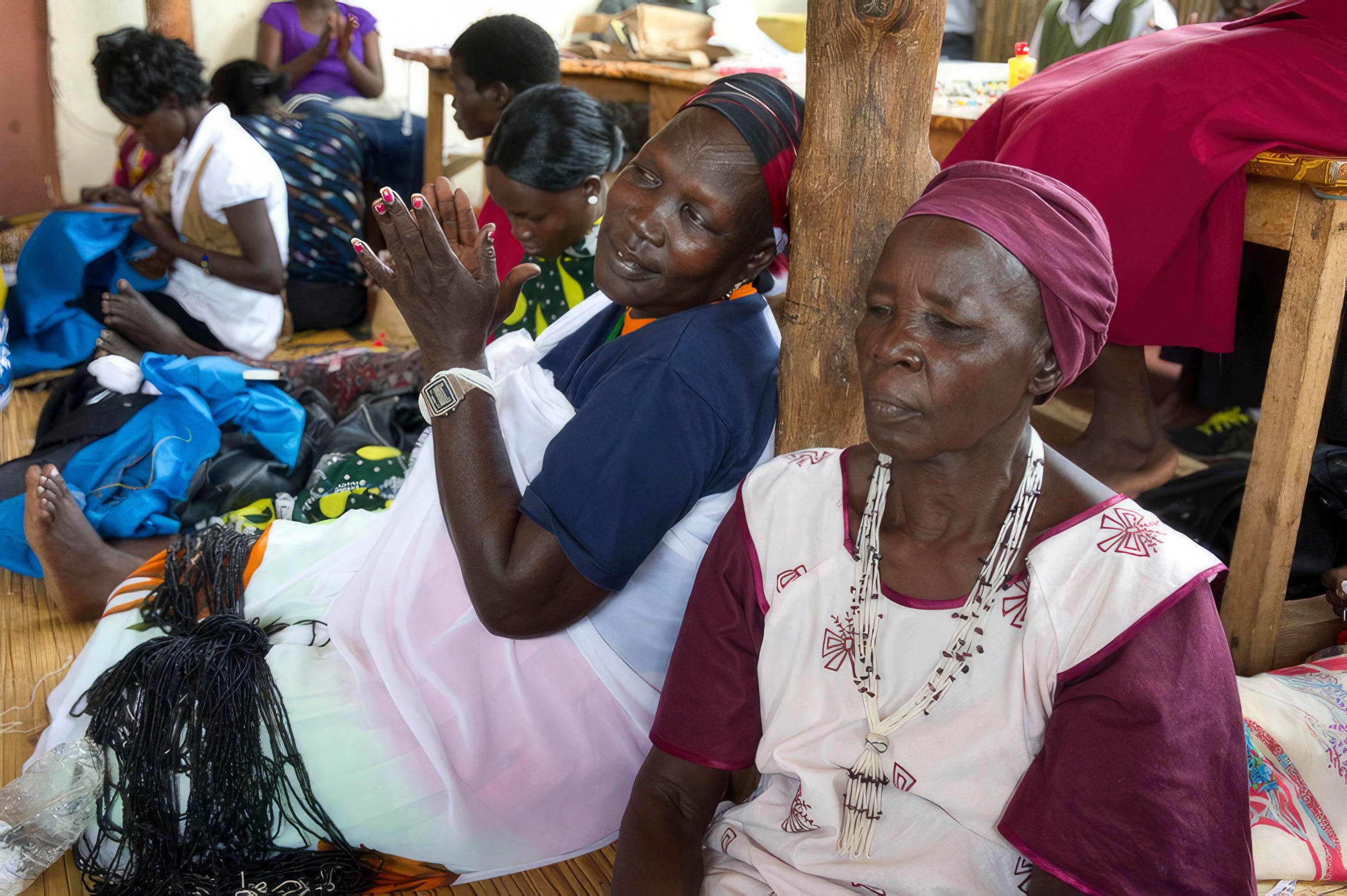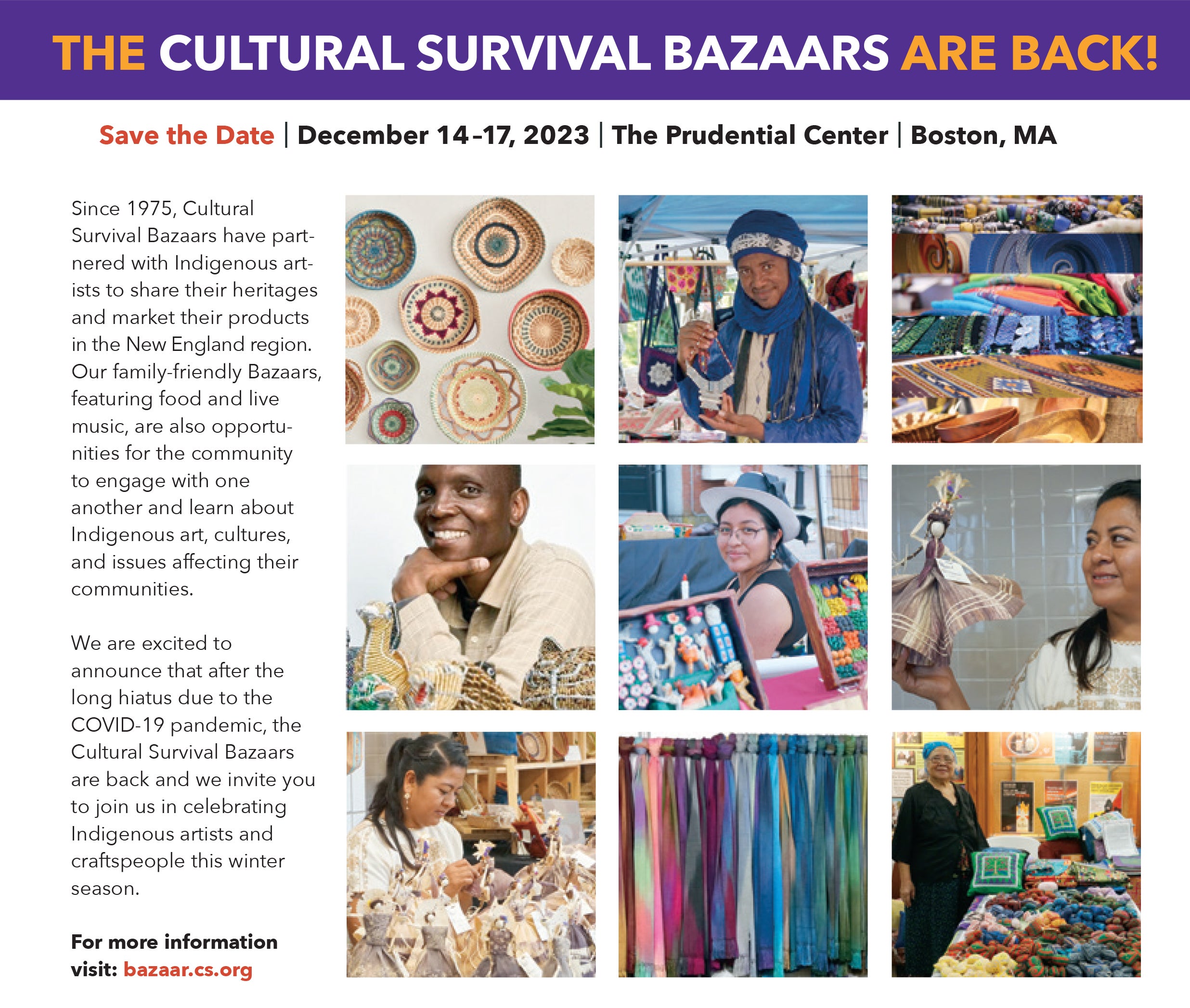
Africa’s Women’s Day is celebrated annually on July 31 to recognize and affirm the role of women in Africa and to spotlight the fight to improve their social and economic status. At Cultural Survival, we want to elevate and support African and Indigenous African women from their own spaces. One of our objectives is to promote Bazaar artists who, through their creations, steward and further the cultures of Indigenous Peoples while contributing to their communities’ economies.
Anyieth D’Awol runs Roots of South Sudan, a project that aims to provide a secure environment for women to pursue economic independence through traditional crafts. D’Awol studied law and human rights in the United Kingdom and has worked as an independent researcher. She has also written on women’s rights, contributing a chapter on sexual violence in “Hope, Pain and Patience: The Women of South Sudan.”
From 2006 to 2009, D’Awol was a Human Rights Officer for the United Nations Mission in Sudan. Through this experience, she envisioned an organization committed to the economic empowerment of South Sudanese women and communities through the promotion of tradition-based arts and crafts, which would eventually take shape as Roots of South Sudan.
 Anyieth D’Awol, Roots of South Sudan founder.
Anyieth D’Awol, Roots of South Sudan founder.
D’Awol endeavored to create a center where women from different Tribes would come together to work under one roof and exchange ideas and techniques. In 2009, she founded the Roots project. Today, as many as 60 women are members of the center, including members from the Dinka, Nuer, Shilluk, Mundari, and Toposa Tribes. They receive the materials for the crafts, and once the product is done, Roots of South Sudan promotes and markets the finished products locally and abroad. Each member’s income supports about six to 10 family members.
Roots of South Sudan also provides literacy and math classes, childcare, healthy meals for the women members and their children, as well as transportation, legal support, and emergency funding for healthcare as needed. During the pandemic, Roots provided food packets to the women to limit their exposure to the local food markets. The women feel thankful not just for the income but also for the experiences with other women: “When I enrolled in ornaments making, we received training, we learned very well. I am grateful to people who buy my crafts,” said Anna Ugut, an ornamental artisan. “The work has given me the opportunity to gain happiness. I [interact] with my fellow Tribal women. The earning I receive from the beadwork helps me provide my children with what they like,” said Martha Nyakuma, a widowed mother of four.
 Women artists working with Roots of South Sudan.
Women artists working with Roots of South Sudan.
Sara Jok, a 53-year-old widowed mother of six, commented, “The first day was difficult; I didn’t interact with the women. But as we continued with work, I learned a lot from the group besides beadwork. We call ourselves one family.” Another member, Akwar, 54, from the Anyuak Tribe, added, “The project has brought me joy and peace. I used to stay home and think about my family; I had no friends to talk to. I gained friendship, and most importantly, the project [was therapeutic]” she says. Akwar has been separated from her family since the beginning of Sudan’s civil war in 2013.
The women of the Roots project bring unique styles and traditions of their Tribes and learn new techniques from each other. Working side by side, sharing with their children and their lives, the women form personal relationships crossing tribal boundaries. They provide social and emotional support to each other and are mutually invested in the project’s success. As D’Awol says, “The cycles of violence, poverty, and insecurity can be broken by the empowerment of women who will provide the right conditions for children and their future.”
Purchase items made by Roots members:
Rootsofsouthsudan.org and roots-jewelry.myshopify.com
The Cultural Survival Bazaars Are Back!
December 14-17, 2023 The Prudential Center, Boston, MA bazaar.cs.org

Photos courtesy of Roots of South Sudan.
